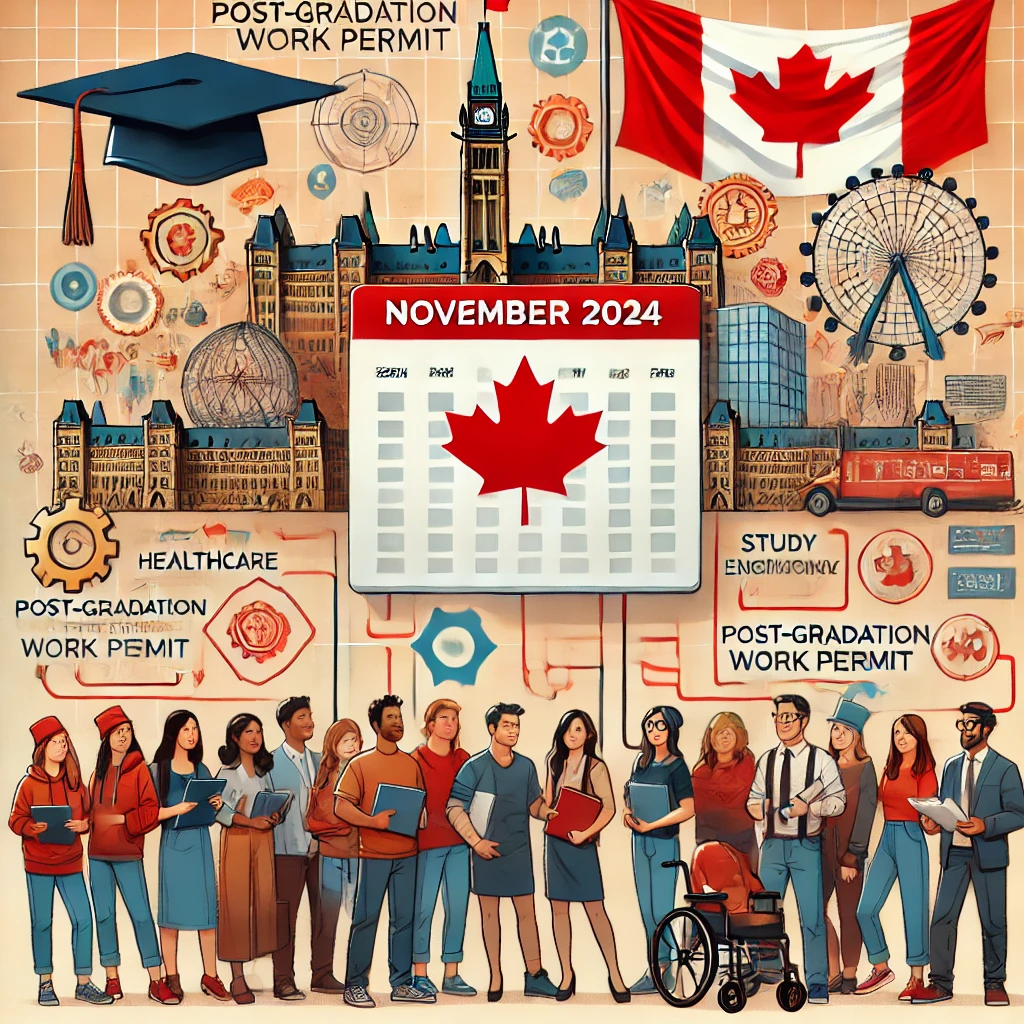
The Government of Canada is set to introduce major reforms to its Post-Graduation Work Permit (PGWP) program, effective November 1, 2024, aimed at aligning with labor market demands. These changes, announced by Immigration, Refugees, and Citizenship Canada (IRCC), will affect how international students transition from studies to work, and it will directly impact future applicants seeking post-study work opportunities in the country.
Key PGWP Changes Starting November 1, 2024
- Work Permit Based on Labor Market Demand:
Post-study work permits will now be linked to fields of study in high-demand sectors. Graduates from programs related to occupations experiencing long-term shortages, such as healthcare, technology, and engineering, will be eligible for a PGWP of up to three years. This is designed to better align international graduates’ skills with Canada’s economic needs. - Language Proficiency Requirements:
New language benchmarks will also be introduced:- University Graduates must meet a Canadian Language Benchmark (CLB) of 7.
- College Graduates must meet a CLB of 5.
- Changes to Spousal Open Work Permits:
Spouses of international students will face stricter criteria for obtaining an open work permit. Only spouses of students enrolled in master’s programs of 16 months or longer, doctoral programs, or select professional degrees will qualify for a Spousal Open Work Permit (SOWP). This change is aimed at reducing the influx of temporary residents. - Tighter Oversight on Private Colleges:
Programs at public-private partnership institutions will be ineligible for PGWPs, a move designed to prevent misuse of the work permit system and to improve oversight.
What Remains Unchanged for Pre-November 1 Applicants
International students applying for study permits before October 31, 2024, will not be affected by the new PGWP rules. This applies to both in-Canada and outside-Canada applicants. Those who submit applications before this cut-off date will continue to be eligible for PGWPs based on current rules, regardless of their field of study.
Study Permit Caps and Financial Changes
Alongside these changes, IRCC will implement a reduced cap on study permits in 2025, limiting them to 437,000 annually, a reduction of 10% compared to 2024. This is part of Canada’s broader effort to manage the rising number of international students, which has placed significant pressure on housing, healthcare, and infrastructure. Additionally, higher financial requirements for students will be introduced to ensure they can support themselves during their studies.
How This Affects Prospective Students
For international students planning to apply for a study visa after November 1, 2024, it is crucial to consider the field of study and potential labor market demand. Programs in fields that are not in long-term shortage may no longer qualify for a PGWP, significantly limiting work opportunities after graduation.
Conclusion
These reforms reflect Canada’s evolving immigration strategy, focusing on attracting skilled labor that aligns with the country’s economic priorities while ensuring a sustainable infrastructure. International students considering Canada as a study destination should pay close attention to these updates and make informed decisions about their programs and application timelines.






